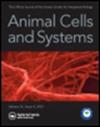Effects of maternal nonylphenol exposure on the proliferation of glial cells in the brain of male offspring mice.
IF 3.2
2区 生物学
Q3 CELL BIOLOGY
引用次数: 0
Abstract
Glial cells play a significant role in maintaining brain homeostasis and normal brain development, and their functions can be impaired by exposure to endocrine disruptors. 4-n-Nonylphenol (NP), a representative endocrine disruptor, is widely used in personal care products and industrial materials. NP accumulates in various organs, including the brain, of living organisms and adversely influences brain health. However, studies on the effects of NP on glial cells are limited. This study aims to investigate the effects of NP on glial cells using primary mixed glial cells and offspring mice exposed to NP during gestation and lactation. In vitro experiments revealed that NP exposure stimulated the astrocytes and microglia proliferation but not oligodendrocytes. NP exposure activated microglia and reduced myelin protein expression in oligodendrocytes. Moreover, maternal NP exposure increased the numbers of microglia and oligodendrocytes in the cerebral cortex of adult offspring. NP exposure caused anxiety- and depressive-like behaviors in adult mice. Collectively, these findings suggest that maternal NP exposure negatively affects the brain development in adult offspring mice.母体接触壬基酚对雄性后代小鼠大脑胶质细胞增殖的影响
神经胶质细胞在维持大脑平衡和大脑正常发育方面发挥着重要作用,接触内分泌干扰物会损害神经胶质细胞的功能。4-正壬基酚(NP)是一种具有代表性的内分泌干扰物,广泛用于个人护理产品和工业材料中。NP 会在生物体的多个器官(包括大脑)中蓄积,对大脑健康产生不利影响。然而,有关 NP 对神经胶质细胞影响的研究十分有限。本研究旨在利用原代混合神经胶质细胞和在妊娠期和哺乳期暴露于 NP 的后代小鼠,研究 NP 对神经胶质细胞的影响。体外实验显示,暴露于 NP 会刺激星形胶质细胞和小胶质细胞增殖,但不会刺激少突胶质细胞。暴露于 NP 会激活小胶质细胞,并减少少突胶质细胞中髓鞘蛋白的表达。此外,母体接触氮磷会增加成年后代大脑皮层中小胶质细胞和少突胶质细胞的数量。NP暴露会导致成年小鼠出现焦虑和抑郁样行为。总之,这些研究结果表明,母体接触氮磷会对成年后代小鼠的大脑发育产生负面影响。
本文章由计算机程序翻译,如有差异,请以英文原文为准。
求助全文
约1分钟内获得全文
求助全文
来源期刊

Animal Cells and Systems
生物-动物学
CiteScore
4.50
自引率
24.10%
发文量
33
审稿时长
6 months
期刊介绍:
Animal Cells and Systems is the official journal of the Korean Society for Integrative Biology. This international, peer-reviewed journal publishes original papers that cover diverse aspects of biological sciences including Bioinformatics and Systems Biology, Developmental Biology, Evolution and Systematic Biology, Population Biology, & Animal Behaviour, Molecular and Cellular Biology, Neurobiology and Immunology, and Translational Medicine.
 求助内容:
求助内容: 应助结果提醒方式:
应助结果提醒方式:


